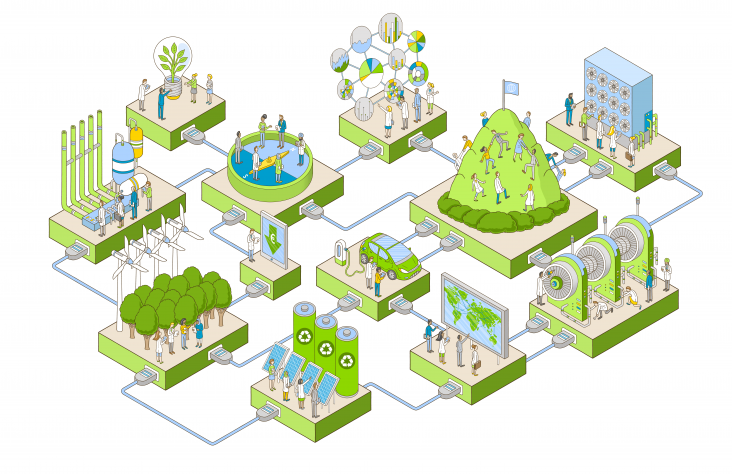Elsevier,
Water, Land, and Forest Susceptibility and Sustainability: Geospatial Approaches and Modeling, Volume 1, 2023, Pages 155-169
This content aligns with SDG Goal 6 and SDG Goal 14 by providing a detailed review on the role of GIS and remote sensing for monitoring the quality of water and management and water body remediation.
This content supports the SDG Goal 3: Good health and well-being and Goal 6: Clean water and sanitation by emphasizing the presence of pathogens, particularly virus, in the waste and leachate materials of some landfills, and also on the waste management, awareness, precaution, needed to be considered to overcome the diseases caused by viral particles.
This chapter aligns with Goal 3: Good Health and Wellbeing and Goal 6: Clean Water and Sanitation by exploring the role of the food industry as a major consumer of water and energy.
This Comment article supports SDGs 3, 6, and 13 by highlighting that Africa has suffered disproportionately from the climate crisis; extreme weather such as severe flooding has damaged the water and food supply, increased food insecurity and malnutrition, and led to loss of cultivated land, shelter, and livestock.
This Article supports SDG 6, focusing on the variation in water insecurity between different sociodemographic groups in low-income and middle-income countries. The authors suggest that indiviudal-level measurements are needed to guide policy interventions that will serve those most in need.
Elsevier,
Shunlin Liang and Jindi Wang; Advanced Remote Sensing (Second Edition), 2020, Pages 765-787
This chapter contributes to SDG 6 and 9 by providing satellite techniques to monitor water storage in the Earth's cycle.
Elsevier,
Visualization Techniques for Climate Change with Machine Learnng and Artificial Intelligence, Sukanya S, Sabu Joseph, 2023, Pages 55-76
This chapter contributes to SDG 6 by describing the potential impacts of climate change on water resources.

The annual UN Climate Change Conference advances climate talks, mobilizes action, and can provide a significant opportunity to look at the impacts of climate change as well as innovation and solutions globally. Elsevier is pleased to showcase a large number of freely accessible journal articles and book chapters to help advance research and action against climate change, as well as a podcast episode, in support of COP27.
Elsevier,
Gouri Sankar Bhunia, Pravat Kumar Shit, Soumen Brahma; Case Studies in Geospatial Applications to Groundwater Resources, 2023, Pages 371-385
This chapter contributes to SDG 6 by using satellite-based information to monitor and forecast for sustainable water resource management.
This Article supports SDGs 3 and 6 by demonstrating that polio environmental surveillance by testing wastewater samples is a valuable tool for tracking the distribution of polio and non-polio enteroviruses, and could be instrumental for global poliovirus elimination efforts.
